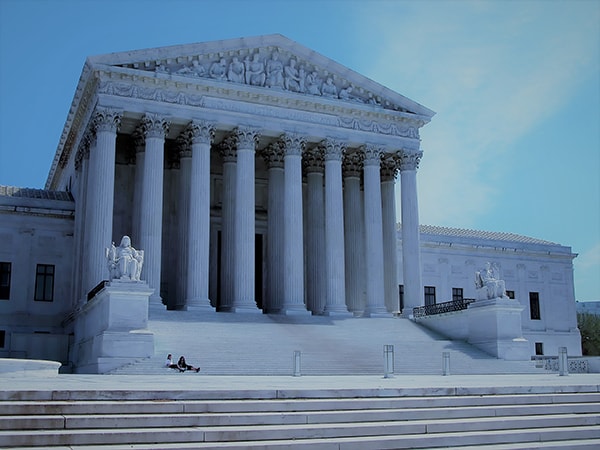Top Federal Appeal Lawyers: Professional Legal Assistance for Your Federal Appeal
Top Federal Appeal Lawyers: Professional Legal Assistance for Your Federal Appeal
Blog Article
Debunking the Refine of Federal Appeals: What You Required to Know
Browsing the complex world of federal charms can frequently look like going across uncharted waters for those not familiar with the process. Comprehending the nuances of appellate court jurisdiction, the intricacies of filing a notice of appeal, offering a compelling brief, and making an influential dental debate are crucial elements that can substantially influence the end result of a situation. By untangling the layers of complexity bordering government charms, people can obtain a clearer understanding right into the mechanisms that control this critical point of the lawful system.
Understanding Federal Appeals Process
Looking into the complex realm of the government allures procedure reveals a systematic and structured journey with the judicial system. Federal allures function as an essential mechanism for evaluating choices made by lower courts. Understanding this procedure is necessary for any individual associated with legal proceedings at the federal degree.
The process typically starts with an event disappointed with a lower court's judgment submitting a notice of appeal. This activates a review by a greater court, where a panel of judges analyzes the legal debates presented by both events. Briefs laying out the lawful reasoning behind each celebration's position are submitted, and oral debates may be heard to make clear complex issues.
The appellate court's choice is based on a comprehensive examination of the lower court's process and the arguments offered. As soon as the appellate court reaches a choice, it can attest, reverse, remand, or change the reduced court's ruling, providing clarity and finality to the lawful dispute.
Appellate Court Territory Explained
Appellate court territory refers to the range of instances that a particular appellate court has the power to examine and choose upon. Unlike test courts that listen to instances for the very first time, appellate courts are restricted to reviewing choices made by reduced courts.
Appellate courts have jurisdiction over particular kinds of cases, commonly those involving legal mistakes, procedural problems, or questions of legislation instead of factual conflicts. The territory of appellate courts is generally laid out in laws and regulations that regulate the court system. Understanding appellate court jurisdiction is crucial for events associated with the allures procedure as it establishes whether a situation is eligible for evaluation and the degree to which the appellate court can intervene in the lower court's decision.
Declaring a Notice of Charm
The preliminary action in commencing the government appeals process entails filing a Notice of Allure with the appropriate appellate court. This important file formally notifies the court and the various other events included in the situation that the appealing event means to look for a testimonial of the lower court's decision. Submitting a Notification of Allure is a rigorous step-by-step demand that sets the appellate process in motion.
When preparing the Notification of Charm, it is necessary to ensure compliance with the details policies and guidelines of the appropriate appellate court. federal appeal attorneys. The file has to commonly include details such as the instance name, the reduced court's name, the date of the judgment being appealed, and a concise declaration showing the premises for the charm

Briefing and Dental Debate
In the appellate process, offering composed briefs and taking part in oral debates play essential duties in advocating for the appealing celebration's setting prior to the appellate court. Briefs are detailed lawful records that lay out the parties' debates, legal authorities, and analysis sustaining their positions. These created submissions give the court with a comprehensive understanding of the realities of the situation, the appropriate legislation, and why the appealing party believes the reduced court's choice must be overturned.
Following the submission and testimonial of the briefs, oral debates supply the parties a possibility to additional clarify their placements, attend to any kind of questions the appellate courts might have, and emphasize bottom lines from their created briefs. Dental arguments are a possibility for the attorneys to encourage the judges with spoken advocacy and feedbacks to questions from the bench.
Both the composed briefs and oral arguments are critical elements of the appellate process, allowing celebrations to offer their situation extensively and compellingly prior to the appellate court. - federal crime attorney
Obtaining the Appellate Court Decision
The appellate court's decision is generally supplied in a written format and lays out the court's conclusions on the legal issues provided, the reasoning behind their decision, and the judgment provided. The time frame for obtaining the appellate court's decision can vary, but courts strive to offer prompt resolutions. Whether the appellate court attests, reverses, or remands the lower court's choice, comprehending the implications of the ruling is critical for all parties entailed in the appellate process.
Conclusion
Recognizing the appellate court territory, filing a notice of appeal, preparing briefs, and providing dental arguments are all essential elements of this process. Inevitably, obtaining the appellate court choice can supply clearness and resolution to legal internet disagreements.
As we progress from comprehending the government charms procedure to dissecting the intricacies of appellate court jurisdiction, a basic facet comes to light regarding the authority and limitations of these higher courts in the lawful landscape. Appellate court jurisdiction refers to the extent of instances that a particular appellate court has the power to decide and review upon. Unlike test courts that listen to cases for the first time, appellate courts are restricted to examining decisions made by reduced courts. Understanding appellate court territory is crucial for events entailed in the charms procedure as it determines whether a situation is qualified for review and the level to which the appellate court can intervene in the lower court's choice.

Report this page